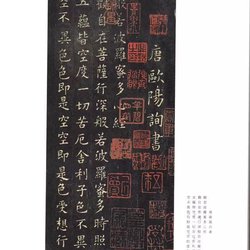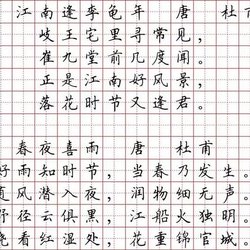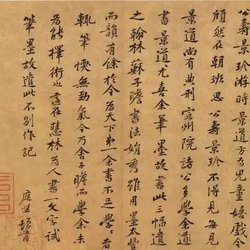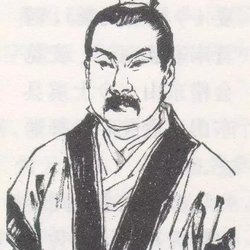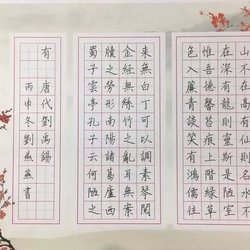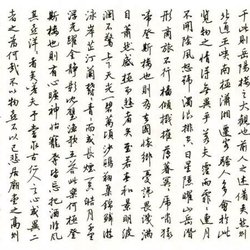This is one of Mi Fu's famous "Nine Cursive Scripts" and one of the representative works of his mature calligraphy style in his later years. From the beginning to the end of this post, the charm is very smooth, the writing is flying, full of joy and no scruples, and the stippling is full of fun. At first glance, it appears that it is "not bound at all", leaning left and right, and its body is unrestrained. Read carefully, but at the same time, the words are in harmony with each other. The words change with the momentum of the composition. The writing is wild but not unruly. The lifting and pressing of buttons are precise and precise. The up and down spirit flows smoothly and has a strong sense of rhythm. Compared with other works, this post has a strong sense of rhythm. It has the charm of the Wei and Jin Dynasties. The writing style is round and subtle, with a seal character. The rhythm is also relatively gentle, and the spirit is leisurely and calm, so it can be arranged at will, which is wonderful and natural.
This post is one of Mi Fu's masterpieces. Although some characters between the eighth and fifteenth lines are slightly smaller, in general, whether it is the font structure, mapping relationship, thickness or overall feeling, they are all A rare piece of good writing.
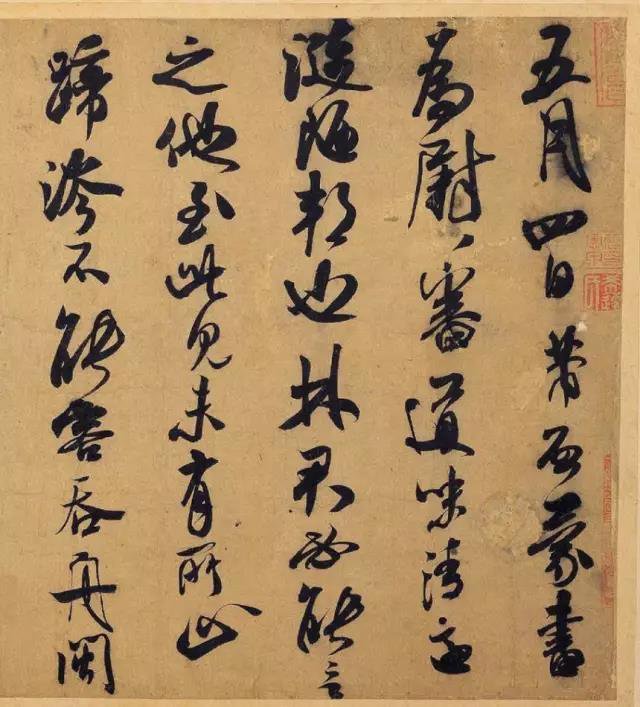
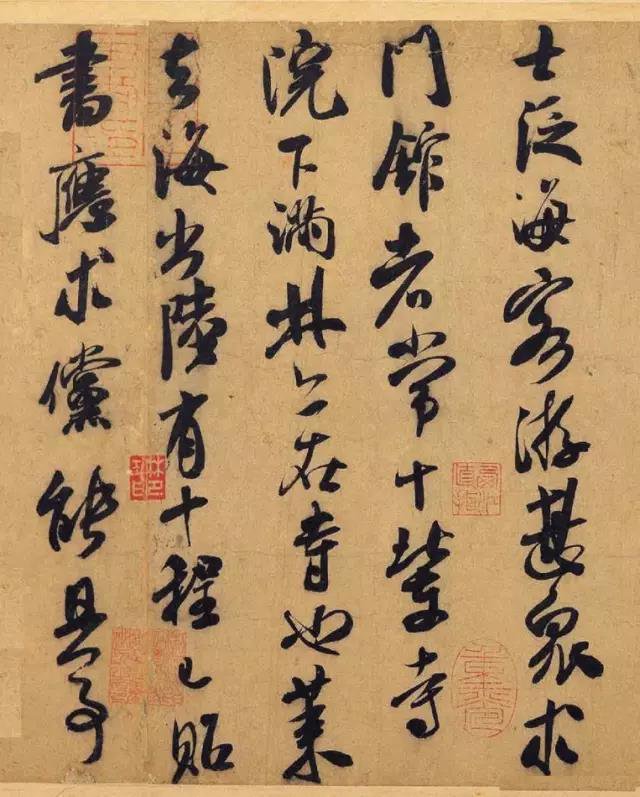
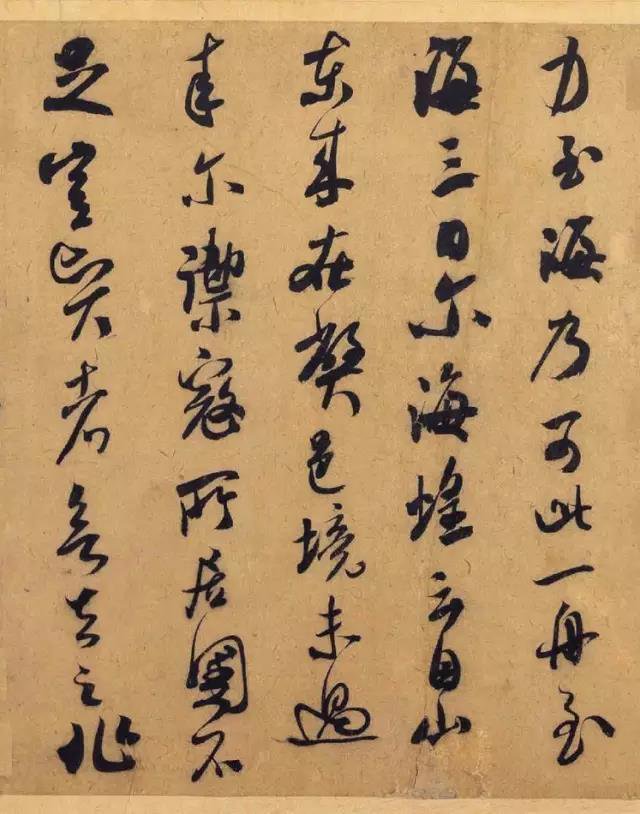
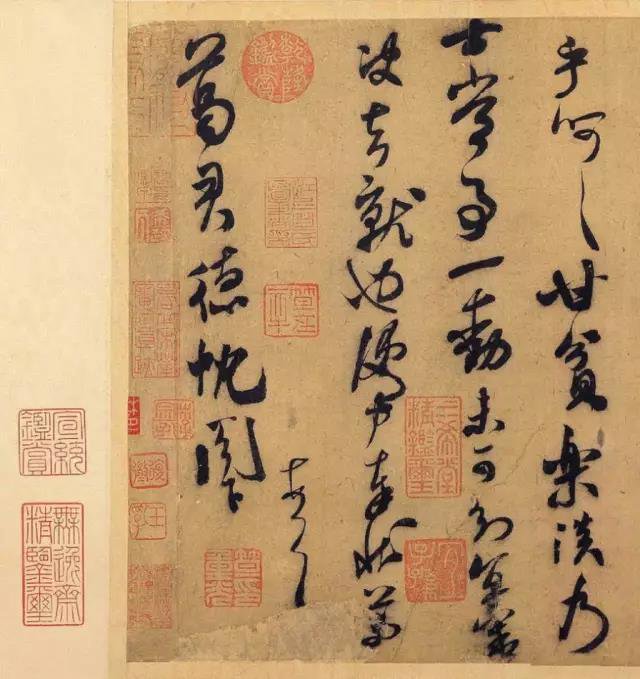
[Explanation] On May 4th, Fu Qi: Meng Shu is Wei (comfort), and the taste is clear and comfortable. Lian is a poor country, and Mr. Lin must be able to speak. When he saw this, he had not stopped yet. His hoofs were too wet to swallow the boat. The Min family lived across the sea, and there were many tourists. There were often ten generations of people seeking a temple. The temple was full, and Lin was also in the temple. Lai is ten miles from the sea to the land, and he has sent a letter to answer his request. If he can find something, he can reach the sea by force. This boat will reach the sea in three days. If the imperial bandits live in a country with insufficient resources, is this a sign that a wise man wants to leave? hehe! It is a common thing for a scholar to be poor and happy. It is unpredictable at any time, so it is better to make a decision and leave. It's like a courtesy. Fu paused. Your Excellency Ge Jundechen.
Mi Fu (1051-1107), named Yuanzhang, also known as Xiangyang Manshi and Haiyue Waishi. His ancestral home is Shanxi, and he moved to Xiangyang, where he is known as "Mi Xiangyang". According to historical legend, he had a weird personality. He liked to wear Tang Dynasty clothes and was addicted to cleanliness. He called "brother" when he met a stone and worshiped him endlessly, so he was called "Mi Dian". He read hundreds of poems at the age of six, studied calligraphy at the age of seven, wrote monuments at the age of ten, and entered officialdom at the age of twenty-one. He was indeed a precocious eccentric. In calligraphy, he is one of the "Four Calligraphers of the Song Dynasty" (Su, Mi, Huang, and Cai), and he is second to none.

